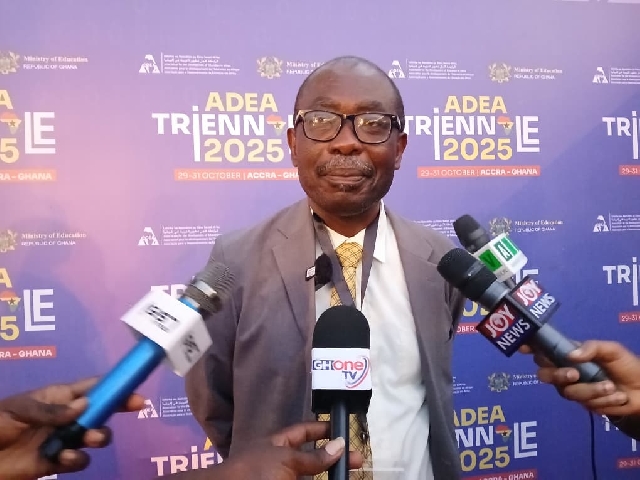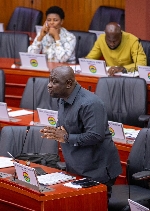Ghana Education Service to implement local language policy
 Prof Ernest Kofi Davis
Prof Ernest Kofi Davis
The Ghana Education Service (GES) is set to implement a policy that promotes the use of local languages in education, particularly in the early stages of a child's education.
According to the Director-General of the GES, Prof Ernest Kofi Davis, the policy aims to give students who do not have access to the school context due to language difficulties an opportunity to learn and build their language proficiency in English.
Prof Davis emphasised that language is a critical tool for learning and that students who are not proficient in the language of instruction may struggle to access the curriculum.
He used the analogy of asking someone their name in Japanese and expecting them to respond, highlighting the importance of using a language that students understand to facilitate learning.
The policy proposes that local languages be used as the medium of instruction from Kindergarten to Grade 3, allowing students to build a strong foundation in reading and mathematics.
This approach is expected to improve learning outcomes and reduce the number of students who struggle to comprehend concepts due to language difficulties.
Some concerns have been raised about the feasibility of implementing this policy, given the large number of languages in Ghana.
However, Prof Davis noted that the policy is not about using multiple languages simultaneously but rather about using the local language as a medium of instruction at the lower primary level.
The Director-General also emphasised that even after the lower primary level, local languages can still be used as an additional resource to support students who may be struggling with English.
He gave an example of a child who may not understand the term "garden eggs" in English but can relate to it when explained in their local language.
The GES is committed to implementing the local language policy to improve learning outcomes and promote equity in education.
By using local languages in education, the Service aims to give students who may be disadvantaged due to language difficulties an opportunity to access the curriculum and build their language proficiency in English.
Source: Classfmonline.com/Edem Afanou
Trending News

Tema–Dawhenya dual carriageway set for completion within two years — Kwame Agbodza
08:43
2026 budget was heavy on slogans but empty on substance – Davis Ansah Opoku
09:40
A/R: Suame main road blocked by artisans over unfinished road, health risks
18:19
Dismissal of interim application doesn’t alter substantive case, lawyer for ex-CJ Torkornoo insists
15:00
Kumchacha predicts NDC victory in 2028, says ‘NPP is like Genesis 11—full of confusion’
17:36
Kasoa–Winneba highway to be completed by June 2026- Roads Minister
08:36
First Lady interacts with St. Mary’s school girls, donates learning materials and interacts with scholarship beneficiaries
18:35
Ghana calls for renewed global action on diamond trade reforms at Kimberley Process Ministerial Meeting
16:50
YEA sends second cohort of 25 Ghanaian youth to UAE for professional driver jobs
13:48
Corrupt officials will face swift, decisive consequences, President Mahama warns ministers
19:26




